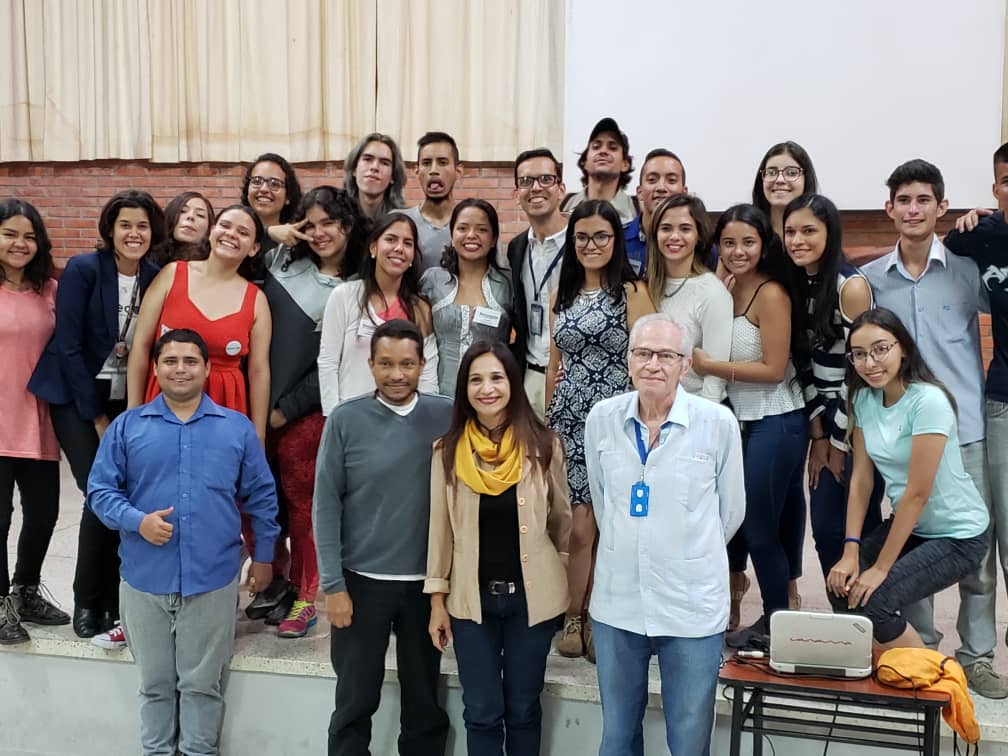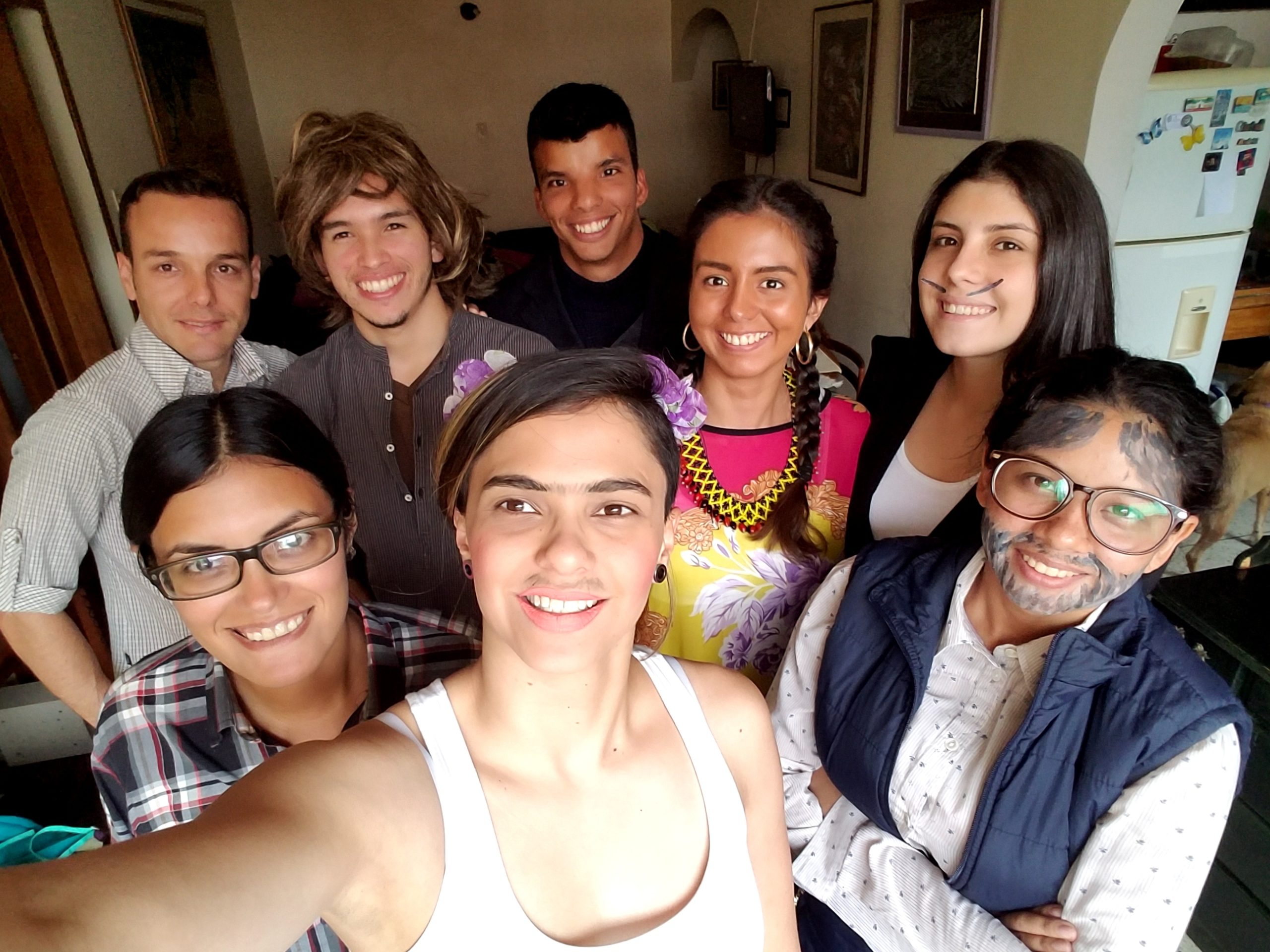How Many of Us Will Graduate?
The first class of Journalism at Mérida’s Universidad de los Andes campus started in July 2016, with 25 students. Three years later, there are only eight. This essay is part of La Vida de Nos’ #SemilleroDeNarradores


Photo: Paula Rangel
There were 25 students when we first walked into that classroom. It was July 2016 and I actually felt like we were making history: the first Journalism class ever to come out of the Universidad de Los Andes’s Merida campus. Venezuela was already in the throes of a crisis that even by then had taken too long to resolve, but we were beyond jadedness those days, maybe because we were excited about majoring in what we really wanted to do. I, for one, could see a bright future ahead.
There wasn’t a day my classmates and I didn’t spend together. We took every class in the same classroom, with the same teachers, exactly like you do in high school. It was a challenge, too, because the hours were demanding and we only had one to one and a half hours for lunch. The food in the cafeteria wasn’t much to write home about, neither healthy nor enough. When they wouldn’t give us protein, we’d waste a lot of time looking to fill that absence so everyone, especially the men, could be full.
But despite that, and despite the fact that I live ten minutes away from the university, I would stay for lunch, just to be near my classmates. We spent most of our time in the woods, pretty much celebrating our friendship with talks or UNO games.
The day to day was harder for people who lived far away, like Simón, who lived an hour from campus. His family didn’t have much money, so he started working when we started our second year. You could see how tired he was, physically and mentally, but I admired him, because he, the person who was having the worst time in the entire class, was encouraging and supporting us. I’d say to myself, “If he can do it, I can.”

The first generation of journalists for this particular university would see many obstacles—and desertions—as the national crisis deepened. Photo by Paula Rangel.
Yet after some time, sharing meals or drinks became harder and harder. The will to share was there, but money, in this savage hyperinflation, was becoming a more present issue. “I’ll pay half, you pay the other half,” we used to say. The plan was to not leave anyone behind.
But the crisis grew, and we weren’t the only ones suffering because right about then, the protests against Nicolás Maduro’s regime erupted, and the university closed down. We had the advantage of taking classes remotely, or at someone’s house because, being the first Journalism class, there were very few of us. So the demonstrations raged, but we didn’t stop.
I remember that, after everything settled down, I went to get dinner in the cafeteria and they only put an orange on the tray. There was also a transport union strike and routes with buses provided by the university stopped working too, because they needed repairs and parts that the university couldn’t afford.
Professors began quitting. We could see how unmotivated they were, unable to tell if they were encouraging us to study or to quit. It was then when the idea of dropping out started crossing some of our minds. Some of us would say that we couldn’t throw away everything we had already invested but, in 2017, when the second year started, there were 18 of us.
And then a students’ strike broke out, which professors joined.
The notion of desertion became another presence between us. For Simón, always exhausted from working as a radio operator at night, it was like another classmate. I gave him my sleeping bag so he could get some rest during his shift, but the rhythm was causing a very obvious strain on his energy, and his good humor.
It wasn’t too long before he decided to walk all the way to Peru.
There were empty desks in the classroom that we could only fill with memories. My motivation went up and down during those days, and I asked myself a lot of difficult questions. Of course, I’d think about leaving, too.

Not many years after first enrolling, there are only eight students in the class. Fewer, but definitely closer. Photo by Paula Rangel.
Photo: Paula Rangel
In 2018, the classroom was too big for us: 11 students enrolled for the third year. We barely hung out now and none of us had time to stay and talk. I didn’t even know where my UNO cards were; the moments we had together were reduced to class or journalism practice. In 2019, the trend continued, with only eight of us left. The moments of closeness and kinship returned, although not as often as before. Being so close to the finish line (it was our second to last year) gave us renewed energy. We started picturing our graduation, from the gala in the aula magna, to the actual celebration party.
We excited our professors with our vibes, and they took every chance to cheer us up, being prime examples themselves of resilience and progress during adversity. The university seemed to recover its spirit, the faculty wasn’t as deserted anymore. We could enjoy, again, that type of juvenile spirit de corps.
One of us, Dibiana, scored an internship at the OAS, and days before her return I had to go on a trip abroad, so we weren’t together all the time and we did have the option of bailing out but, at least for me, the notion of migration was no longer doing rounds in my head. We were that hyped, again.
And just two weeks from ending our fourth school year, the COVID-19 pandemic erupted in Venezuela. Classes are not just over; we don’t even know when we’ll be coming back to our university, a struggle that despite our strongest will and dedication, insists on prolonging itself. A drama that we’re surely not the only ones to suffer in a nation where students live with the same question in their minds:
How many of us will graduate, and when?
Caracas Chronicles is 100% reader-supported.
We’ve been able to hang on for 22 years in one of the craziest media landscapes in the world. We’ve seen different media outlets in Venezuela (and abroad) closing shop, something we’re looking to avoid at all costs. Your collaboration goes a long way in helping us weather the storm.
Donate




